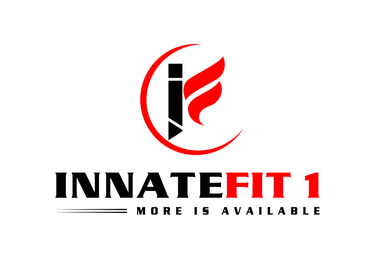Visit Innatefit1.com for exercise wear and equipment!!!
Nutritional Strategies For Lean Muscle Growth In Women
Discover the best nutritional strategies for women to achieve lean muscle growth with our expert guide. From protein intake to nutrient timing, learn how to optimize your diet for maximum results.
WOMEN'S HEALTHHEALTHY LIFESTYLEFITNESS TIPS
Joseph Battle
3/5/20254 min read


Introduction to Women's Muscle Growth Goals
Nutrition is the backbone of any successful muscle growth journey. For women, understanding how diet influences muscle development is crucial.
According to recent studies, nearly 70% of women aim to either tone or build muscle, but many overlook the vital role nutrition plays in achieving these goals.
This article aims to clarify the differences between toning and building muscle while providing effective nutritional strategies to support your fitness objectives. Whether you want to achieve a sculpted physique or increase overall strength, setting realistic fitness goals is essential to your success.
Toning vs Bulking: Diet's Role in Women's Fitness
Toning refers to increasing muscle definition while reducing body fat, typically achieved through lighter weights and higher repetitions.
In contrast, bulking focuses on increasing muscle mass through heavier weight training and a caloric surplus. Understanding these definitions is essential for women who want to tailor their nutrition accordingly.
The diet you choose plays a pivotal role in achieving your fitness goals. For toning, a balanced diet that supports fat loss without sacrificing muscle is crucial. This includes lean proteins, non-starchy vegetables, and healthy fats.
Conversely, bulking requires a calorie surplus, emphasizing nutrient-dense foods like chicken, fish, quinoa, and healthy fats to promote muscle growth.
Nutrition is the foundation of muscle growth. Whether toning or bulking, the right foods can dictate your success!" - Fitness Expert
Examples of foods that support toning include eggs, Greek yogurt, and leafy greens. For bulking, consider lean beef, salmon, and sweet potatoes. Choosing the right foods can significantly impact your results and help you reach your fitness goals more effectively.
Women's Strength Training Nutrition
Role of Macronutrients
Macronutrients are the cornerstone of effective nutrition for women aiming to build muscle. A balanced intake of proteins, carbohydrates, and fats is essential for sustainable muscle growth. For optimal results, women should aim for a macronutrient ratio of 30-35% protein, 40-50% carbohydrates, and 20-30% healthy fats.
Importance of Protein
Protein plays a vital role in muscle repair and growth. Women should target an intake of about 1.6 to 2.0 grams of protein per kilogram of body weight daily. Quality protein sources include:
Chicken
Fish
Greek yogurt
Lentils
Quinoa
Adequate protein not only supports muscle synthesis but also aids in recovery and helps maintain lean muscle mass.
Hydration and Its Effects on Performance
Hydration is crucial for performance in strength training. Women must pay attention to their fluid intake, especially during hormonal fluctuations throughout the menstrual cycle. Proper hydration helps maintain blood plasma volume and thermoregulation, which are key for optimal workout performance.
The Perfect Women's Muscle Gain Meal Plan
Creating a muscle gain meal plan tailored to women involves a structured approach to ensure adequate calorie intake and nutrient balance. Here’s a sample plan for a day:
Sample Day Meal Plan
Breakfast: Greek yogurt topped with granola and mixed berries. Snack: A handful of almonds and an apple. Lunch: Grilled chicken with quinoa and steamed broccoli. Snack: Hummus with carrot sticks. Dinner: Baked salmon with sweet potatoes and asparagus. Snack: Cottage cheese with pineapple.
This daily structure provides approximately 2,200 calories, balancing proteins, carbohydrates, and healthy fats. Women should aim for 1.6 to 2.2 grams of protein per kilogram of body weight to support muscle growth.
"Meal planning not only simplifies daily nutrition but also enhances performance and recovery, making it easier to achieve your fitness goals."
Tailor each meal to your personal preferences and caloric needs. Adjust portions based on activity levels and specific fitness objectives to maximize results.
Nutrient Timing for Maximum Muscle Definition
Nutrient timing is a vital strategy for maximizing muscle growth and enhancing muscle definition. This practice involves consuming specific nutrients at particular times, especially around workout sessions, to optimize recovery and performance.
To fuel your workouts effectively, aim to have a pre-workout meal that combines both protein and carbohydrates approximately 2-3 hours before training. Ideal options include oatmeal with protein powder and banana or whole-grain toast with turkey and avocado.
After your workout, prioritize a post-workout snack rich in protein and carbs, such as chocolate milk or a protein shake with fruit, within 30 minutes to kickstart recovery.
Research indicates that meal timing can significantly impact metabolism. For instance, individuals who eat regularly throughout the day maintain a more stable metabolic rate than those who skip meals.
This structured approach not only supports muscle growth but also aids in fat loss, leading to a leaner physique. Nutrient timing can be a game-changer in your fitness journey.
Best Supplements for Women's Muscle Gain
When it comes to muscle gain, women can benefit from several effective supplements. Here are some of the most popular:
Protein: Essential for muscle repair and growth, women should aim for 1.2-2.2g/kg/day. Whey protein is particularly effective.
Creatine: Helps improve strength and lean mass; a daily dose of 5-10g is recommended.
Fish Oil (Omega-3s): Supports muscle protein synthesis and reduces inflammation.
Vitamin D: Important for bone health and muscle function, especially for those with limited sun exposure.
Arginine: Aids in muscle protein synthesis and can enhance performance.
FAQ:
Do I need supplements for muscle gain? If your diet lacks sufficient protein or calories, supplements can help bridge the gap.
Are there any drawbacks? Individual responses can vary, and it's crucial to consult a healthcare professional before starting any supplementation.
"Supplements can enhance your muscle-building efforts, but they should complement a well-rounded diet, not replace it." – Nutritionist
Conclusion
In this article, we've explored the vital role of nutrition in supporting lean muscle growth for women. We discussed the importance of a balanced diet rich in protein, the benefits of key supplements like creatine and fish oil, and how timing your meals can enhance your results. Remember, consistency is key. Commit to your goals and embrace a sustainable approach to your nutrition and training.
As you embark on your muscle-building journey, always prioritize your dietary choices. A well-planned women's muscle gain meal plan can make all the difference. Start today, and watch your progress unfold!




